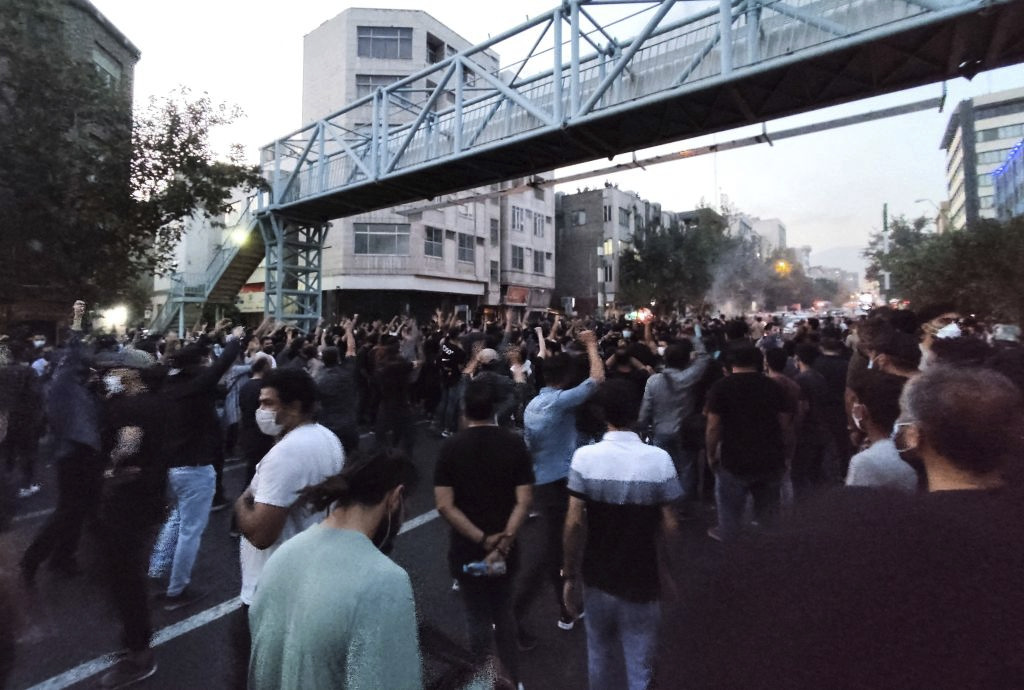
Historically known as Persia, Iran stands as one of the most illustrious civilizations in human history. For centuries, it was a beacon of cultural, scientific and political advancements, earning respect and admiration across the globe. This legacy of greatness persisted until 1979, when a group of Islamic fundamentalists, obsessed with religion, hijacked a revolution that drastically altered the nation's trajectory.
The mullahs seized control, installing a theocratic Islamist regime that has since ruled with an iron fist — arguably one of history's most brutal and oppressive reigns. The proud heritage of a nation that once symbolized enlightenment and progress has been overshadowed by a reign marked by suppression, regression and fear.
What the people of Iran longed for during the 1979 revolution was democracy, freedom and the opportunity to thrive in a modern world. Yet, with astonishing speed, the mullahs seized their aspirations, transforming a country celebrated as a regional hub of hope, prosperity, and progress into an economically and politically bankrupt state. For more than four decades, the Islamist regime has steered Iran toward ruin, not only dismantling its potential but also weaponizing its resources for militant agendas that sow chaos far beyond its borders. The contrast between what Iran was and what it has become under this regime is both tragic and stark.
Ironically, Iran's current regime stands in direct contrast to the values and character of the majority of the Iranian people. The Iranian populace is largely democratic in spirit, open-minded and highly educated, as evidenced by their repeated uprisings against the dictatorship. In recent years, several nationwide protests have erupted, demonstrating the people's resilience and their desire to reclaim their country. However, each of these movements has been met with unimaginable brutality.
Unlike Iran's regime, the country's people are overwhelmingly pro-American and pro-Jewish -- sentiments rooted in a historical alliance that made Iran the closest ally of both Israel and the United States before the mullahs came to power. The regime's anti-American and antisemitic stance is an affront to the true nature of its citizens, who yearn for peace and global partnership.
Israeli Prime Minister Benjamin Netanyahu, in a powerful message directed at the Iranian people, recently captured this sentiment. He distinguished between the oppressive regime and the citizens of Iran:
"When Iran is finally free—and that moment will come a lot sooner than people think—everything will be different. Our two ancient peoples, the Jewish people and the Persian people, will be at peace."
His words, which resonated deeply among the citizens of Iran, emphasized the shared history and potential for renewed friendship between these two great nations once the regime falls.
The call to "Make Persia Great Again" reflects the collective will of the Iranian people to reclaim their nation's dignity and restore its historical prominence. Yet, the regime continues to suppress its own people, not to mention those around them. The facade of Iran created by the regime is so utterly disconnected from the aspirations of its citizens.
Beyond the domestic repression, the regime has also become a global menace, forging ties with Venezuela's Tren De Aragua criminal organization, which is active in more than 16 states in the US; supporting terrorist proxy groups in Lebanon, Yemen and the Gaza Strip, which are attacking Israel; arming Russia in its war on Ukraine, and making alliances with authoritarian regimes in Africa to plunder their resources and expand Iran's reach.
This network of chaos and terror underscores the extent to which the regime misuses Iran's assets, perpetuating instability instead of fostering development and peace.
Without the oppressive ruling mullahs, Iran could once again be a force for good, both domestically and globally. Freed from their brutal rulers, the Iranian people could channel their immense talent and potential into rebuilding their nation as a thriving hub of innovation, culture and prosperity. This revival would not only uplift Iran but also finally bring peace and stability to the Middle East and beyond, setting an example of what a liberated, flourishing nation can achieve.
What must be done to bring about this change? First, the West must take decisive action to weaken the regime politically and economically. The most stringent sanctions should be enforced to cut off Iran's oil and gas revenues, with strict penalties for any country that violates these measures. Second, targeted operations should neutralize the regime's nuclear facilities, ensuring that it cannot develop nuclear weapons. Third, military strikes on key military and oil infrastructure could send a strong message that the world will no longer tolerate belligerence. Fourth, the global community must unequivocally support the Iranian people, pledging solidarity if they rise against their oppressors. Finally, there should be no negotiations, deals or trades with the regime. Such engagements only empower and legitimize the mullahs while undermining the people's struggle for freedom.
The time has come to support the cause of the Iranian people and ensure that this great nation, with its rich history and boundless potential, rises once more – without mullahs. "Make Persia Great Again."
Dr. Majid Rafizadeh, is a scholar, strategist and advisor, Harvard-educated analyst, political scientist, board member of Harvard International Review, and president of the International American Council on the Middle East. He has authored several books on the US Foreign Policy and Islam. He can be reached at Dr.Rafizadeh@Post.Harvard.Edu


